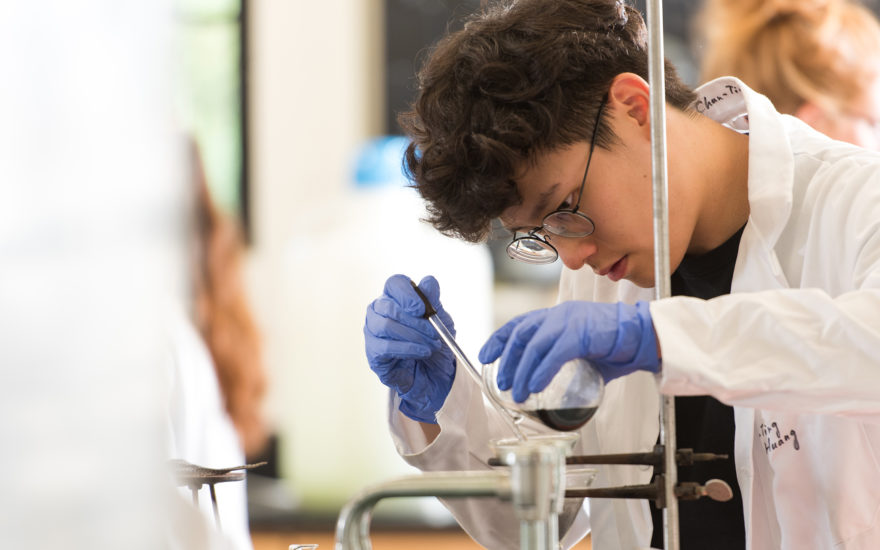CHEM 250
PLSInorganic Chemistry
Investigate the structure and properties of inorganic substances while contributing to a rigorous research project that aims to produce results of sufficient quality and quantity suitable for publication.

Request Information
Take matter into your own hands.
Majoring in chemistry at Clark puts the physical makeup of our world — from nanoparticles to DNA and the elements on the periodic table — under your microscope and into your hands. You’ll engage in research as early as your first year and collaborate on new discoveries with leading professors in the field.
Chemistry requires a sense of adventure; as you explore the hidden structure and properties of matter, you’ll learn what the world is made of — not to mention what you’re made of. Through hands-on learning, lab work, and internship experiences, you’ll emerge with a bachelor of arts degree in chemistry, prepared for an adventurous and rewarding career.
Curriculum update
Effective fall 2025, Clark will recognize this course of study by awarding a Bachelor of Science in Chemistry. Students graduating before then will be awarded a Bachelor of Arts. Contact your academic advisor for details.
Chemistry
As a chemistry major, you will select one of two tracks based on your career goals:
For your first two years, requirements are identical for the two tracks.
All students are required to take two courses each in calculus and physics. (If you’re planning to go on to graduate school, we strongly urge you to take additional advanced courses in chemistry, mathematics, physics, and biochemistry while at Clark.) You’ll also be required to demonstrate competence in communicating chemical concepts (for example, through reports based on research in the chemical literature, Academic Spree Day or Fall Fest presentations, directed study papers, honors theses, or publications), as well as take a standardized undergraduate chemistry knowledge diagnostic exam before graduation.
Tutoring in chemistry is available, free of charge, five days a week.
If you’re considering a career teaching chemistry at the high school level, we encourage you to check out the Noyce Scholarship program. A robust Prehealth Advising Program is available if you’re interested in pursuing a career in the health professions.
Building your foundation
The Clark Core allows students to take courses across diverse disciplines, helping them develop critical thinking skills and respect for other cultures and perspectives. You’ll connect classroom learning with action through world and workplace experiences.
Notifications